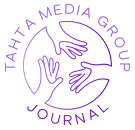Kepemimpinan Visioner Kepala Sekolah dalam Meningkatkan Pendidikan Pariwisata
DOI:
https://doi.org/10.55080/jpn.v1i3.18Keywords:
Visioner Leadership, Principal of School, Tourism EducationAbstract
This study aims to understand and analyze the visionary leadership of school principals in improving tourism education. Using this type of qualitative research with a phenomenological approach, the research target is at SMK Negeri 2 Ponorogo. Data collection techniques included in-depth interviews, participant observation, and documentation study. Data analysis techniques include data collection, condensation, data display, and drawing and verifying conclusions. The results showed that the principal's visionary leadership in improving tourism education at SMK Negeri 2 Ponorogo has been running effectively and efficiently by showing three dimensions: commitment, consistency, and competence. The principal's visionary leadership has also shown himself to be an “agent of change”, which consists of conceptual skills, technical skills, and human relations. The efforts of the principal of SMK Negeri 2 Ponorogo in improving tourism education are: (1) the ability of the principal to manifest his behaviour and attitude to his members; (2) the principal's ability to communicate verbally and non-verbally, supported by thinking out of the box; (3) the ability of the principal in identifying and solving problems with new techniques and methods and not being too cooperative; (4) the ability of the principal to leave doubts, be ready to take risks for innovation, and be open to doing different things; (5) the principal's ability to use the power of imagination, appreciation, intuition in making decisions.
Downloads
References
Bush, T. (2015). Organization Theory in Education: How does in Inform School Leadership. Journal of Organizational Theory in Education, 1(1), 35–47.
Creemers, B., & Reynolds, D. (1991). School Effectiveness and School Improvement, An International Journal of Research, Policy, and Practice. New Jersey: Swets & Zeitlinger.
Creswell, J. W., & Creswell, J. D. (2017). Research design: Qualitative, quantitative, and mixed methods approaches. Sage publications.
Furqon, F., & Nurdyansyah, N. (2020). The Principal’s Strategy in Forming the Religious Character of Students. Proceeding of The ICECRS, 5.
Gunawan, G. (2020). The influence of transformational leadership, school culture and work motivation on school effectiveness in junior high school in Medan. Budapest International Research and Critics Institute (BIRCI-Journal): Humanities and Social Sciences, 3(1), 625–634.
Hadi, Y. D. (2020). Kepemimpinan Visioner Kepala Sekolah Dalam Meningkatkan Mutu Pendidikan. Dinamika Penelitian: Media Komunikasi Penelitian Sosial Keagamaan, 19(2), 187–207.
Hickman, C. R., & Silva, M. A. (2018a). Creating excellence: Managing corporate culture, strategy, and change in the new age. Creating Excellence: Managing Corporate Culture, Strategy, and Change in the New Age. https://doi.org/https://doi.org/10.4324/9781351065306
Hickman, C. R., & Silva, M. A. (2018b). Creating excellence: Managing corporate culture, strategy, and change in the new age. Creating Excellence: Managing Corporate Culture, Strategy, and Change in the New Age. https://doi.org/10.4324/9781351065306
Hoy, W. K., & Miskel, C. (2013). Educational Administration: Theory, Research, and Practice. New York: McGraw-Hill Education.
Ikhwan, A. (2021). Metode Penelitian Dasar (Mengenal Model Penelitian dan Sistematikanya). Tulungagung: STAI Muhammadiyah Tulungagung.
Ikhwan, A., & Qomariyah, S. N. (2022). Manajemen Sarana dan Prasarana di Era Disrupsi Sebagai Pendukung Proses Pembelajaran Pasca Pandemi Covid-19. JIE (Journal of Islamic Education), 7(1), 100–114.
Ikhwan, A., & Yuniana, A. N. (2022). Strategy Management Semi-Islamic Boarding Schools. Al-Hayat: Journal of Islamic Education, 6(1), 74–86.
Kemenag. (2014). Peraturan Menteri Agama Nomor 29 Tahun 2014 Tentang Kepala Madrasah.
Kemendikbud. Peraturan Menteri Pendidikan dan Kebudayaan Republik Indonesia Nomor 6 Tahun 2018 Tentang Penugasan Guru Sebagai Kepala Sekolah (2018).
Kemendiknas. Peraturan Menteri Pendidikan Nasional Republik Indonesia Nomor 13 Tahun 2007 Tentang Standar Kepala Sekolah/Madrasah (2007).
Lopez, G. (2017). The Impact of a Middle School Principal’s Leadership on School Culture: A Case Study. California: California State University.
Mardiyah, M. (2012). Kepemimpinan Kiai dalam Memelihara Budaya Organisasi di Pondok Modern Gontor , Lirboyo Kediri, dan Pesantren T ebuireng Jombang. Tsaqafah, 8(1), 67. https://doi.org/10.21111/tsaqafah.v8i1.21
Masaong, A. K. (2019). Penguatan Teori dan Praktis Budang Manajemen Pendidikan Memasuki Era Revolusi Industri 4.0. In Manajemen Pendidikan Era Revolusi Industri 4.0. Malang: UM Penerbit dan Percetakan.
Miles, M. B., Hubberman, A. M., & Saldana, J. (2014). Qualitative Data Analysis: A Methods Source Book. California: SAGE Publication.
Moleong, L. J. (2015). Metode Penelitian Kualitatif. Bandung: Remaja Rosdakarya.
Mulyadi, M. (2010). Kepemimpinan Kepala Sekolah Dalam Mengembangkan Budaya Mutu. Malang: UIN-Maliki Press.
Musthan, Z. (2019). An Effective Leadership Model for Madrasah Principals in Indonesia. Pertanika Journal of Social Sciences & Humanities, 27(1).
Permadani, D. R., Maisyaroh, M., & Mustiningsih, M. (2018). Kepemimpinan Kepala Sekolah dalam Pembuatan Keputusan. JAMP: Jurnal Administrasi Dan Manajemen Pendidikan, 1(3), 320–326.
Purwanti, S. (2013). Peran Kepemimpinan Kepala Sekolah Dalam Meningkatkan Disiplin Kerja Guru Dan Pegawai Di Sma Bakti Sejahtera Kecamatan Kongbeng, Kabupaten Kutai Timur. E-Journal Ilmu Administrasi Negara, 1(1), 210–224.
Saputri, L. M., Anwar, S., Susanto, H., & Laksana, S. D. (2022). The Role of Parenting in Forming Independent Character and Discipline. Diversity Science, 2(1), 158–170.
Sarwono, J., Jusuf, D. I., & Sumarto, S. (2020). The Roles of Visionary Leadership and Organization Culture Toward the Response of Changes in Higher Education Institution (Survey at International Women University). In 3rd International Conference on Research of Educational Administration and Management (ICREAM 2019) (pp. 189–196).
Soetopo, H. (2010). Perilaku Organisasi: Teori dan Praktik di Bidang Pendidikan. Bandung: PT. Remaja Rosdakarya.
Suryana, A. (2010). Personal Values and Commitment in Achieving Goals through the Cultural Organization of Work. The Journal of Values-Based Leadership.
Ulfatin, N. (2015). Metode Penelitian Kualitatif di Bidang Pendidikan: Teori dan Aplikasinya. Malang: Media Nusa Creative.
Yin, R. K. (2017). Case study research and applications: Design and methods. Sage Publications.
Downloads
Published
How to Cite
Issue
Section
License
Copyright (c) 2022 Aldo Redho Syam, Syarifan Nurjan, Rido Kurnianto, Lilis Sumaryanti, Safitri Windi Handayani

This work is licensed under a Creative Commons Attribution 4.0 International License.








